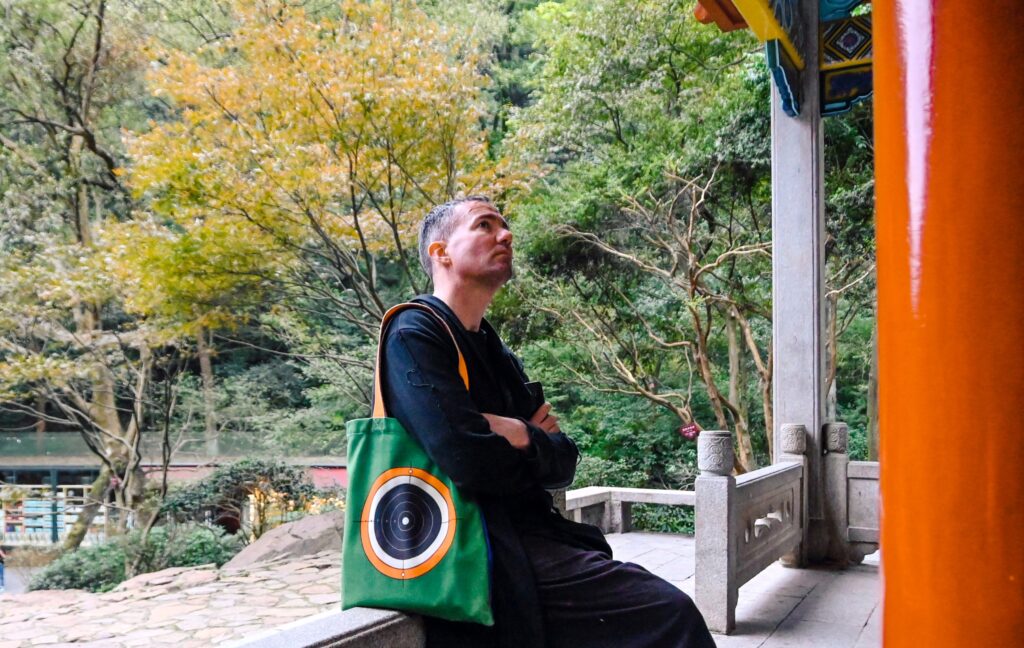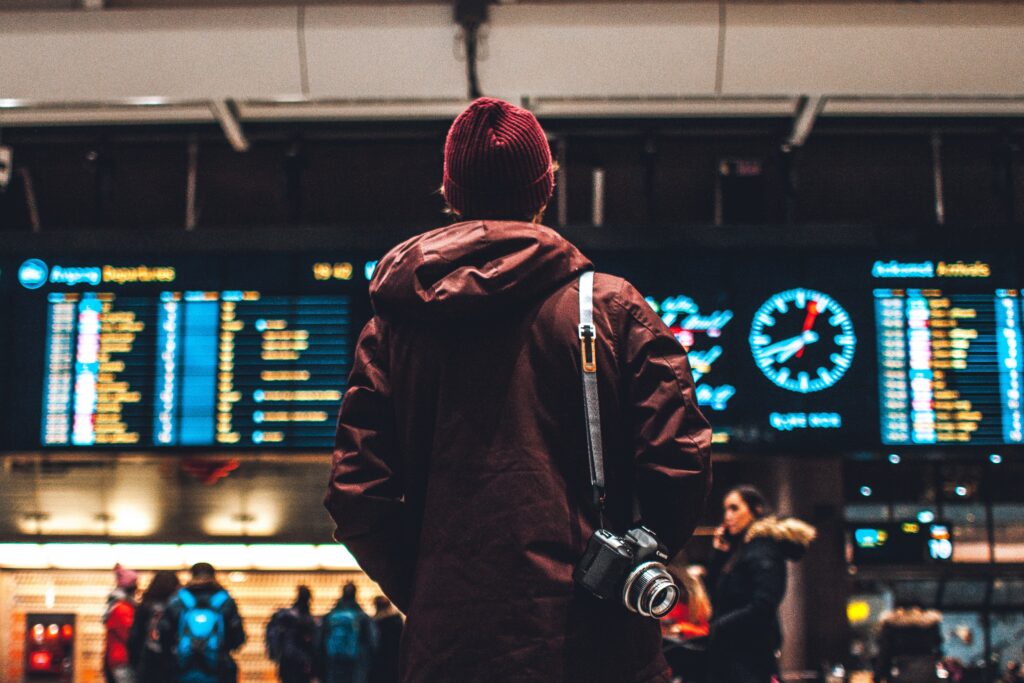Living in Shanghai was going well for Hutch, he had built his own business and was enjoying the local lifestyle. However, all of that changed with the arrival of Covid.
“The pandemic was really terrifying, the uncertainty of it all. With a business that was predicated on open borders, the company was failing, so I knew I had to return to New Zealand, because getting trapped in China without work, an income, or a place to live was fast becoming a real risk. I had no idea when borders were going to reopen or when things would return to normal. I honestly thought I would end up living on the streets of Shanghai.”
To help get home, Hutch had joined a WeChat group for Kiwi expats to share the latest information on border control, flights, and where to find PCR tests. It was through this group that one Kiwi expat stepped up and offered Hutch an incredible gift.
“I mentioned in the group that my flights kept getting cancelled, and at that point I had been forced to relocate to a hotel. Each missed flight was just more money being lost and the financial strain was real – I was almost entirely out of funds. One of the people got in touch and offered to buy me a plane ticket that enabled me to finally get home. It really blew me away.”

Upon returning to New Zealand Hutch started a new job and paid the kind Kiwi back but he says it taught him a valuable lesson about the power of community.
“There’s a whole circle of people out there who will reach out and help you, even if they don’t know you. I think that’s the greatest asset of the expat community, particularly the Kiwi expat community, it’s so strong and supportive.”
Readjusting to a new country
With all his focus on just getting back into the country, Hutch hadn’t had time to prepare for the reality of coming home, and although he had secured a job offer before landing, the task proved more difficult than he had first thought.
“Expats are often led to believe that offshore work experience is a net positive, but it tends to be the opposite. Chinese business practices are quite different to that of New Zealand’s, so I knew that finding a role to compliment my work experience in China would be important.
“Luckily, my current role in Auckland has strong parallels with the way I worked in Shanghai. Fast turnaround on projects and working flexibly to achieve inflexible deadlines is pretty familiar to Shanghai’s work culture, and we’ve had a few Chinese projects this year, so my overseas experience was beneficial, and my employers also see the value in this.”
With a job sorted, Hutch landed back in Auckland. Although a City of Sails native, Hutch hadn’t been back to the city in almost 25 years and wasn’t sure what to expect.
“Although apprehensive to begin with, what really helped was finding an apartment in the central city, in a neighbourhood that, much to my surprise, reminded me of Shanghai. Near the apartment was a Shanghai dumpling shop and a jianbing place. Downstairs was a Chongqing restaurant, a Lanzhou noodle shop, Xi’an cuisine… when I first arrived, every voice I heard was Chinese. It was the soft landing I needed to transition into my new life here.”
Why all expats should have an exit strategy
While Hutch acknowledges the fact that he came home during unique circumstances, he says that the lessons he learnt are still valid for returners looking to come home now. He believes all offshore Kiwi should have a solid exit strategy, even if they are not planning to return for some time.

“A lot of expats find it easy to live day to day and not think about their exit strategy, particularly in a place like Shanghai, which is fairly inexpensive to live in compared to New Zealand. Often expats enjoy the lifestyle there and don’t think to save money, some returning home with nothing. My circumstance meant that almost all my money was lost in the business collapsing. It’s really hard coming back without a safety net.”
He also wants to emphasise the importance of planning, including looking for a job in advance of returning and having an idea of where you want to live to ensure you can build a community around you on your return.
“Depending on how long you have been away, New Zealand won’t be the same as you left it. There will be different politics, different cultural attitudes, it even takes time getting used to the Kiwi accent again. For me, coming home after eight years, I’ve actually really enjoyed it. There are moments when I feel nostalgic for China and think ‘why have I come back?’ but I think returnees tend to feel that way after such a long time offshore. To make the adjustment easier you need to establish a supportive community of friends or family to lean on, particularly in the beginning.”

 MENU
MENU











